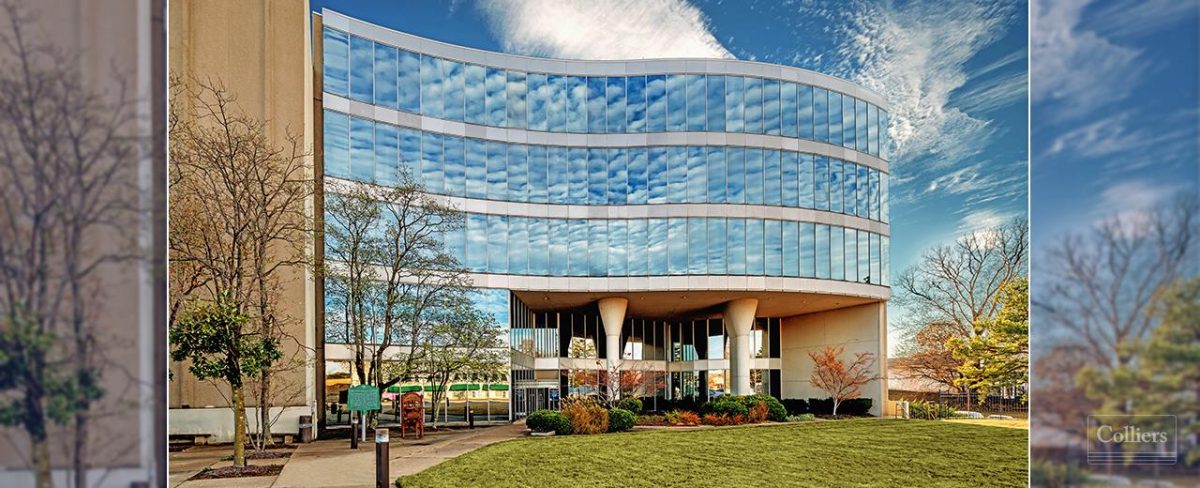A nonprofit organization is working to raise $1.1 million to turn the building that once housed The Commercial Appeal into an immersive, vocational development program for underserved youth.
Ty Cobb, president of Have a Standard Foundation, presented his plans for his CoreFire program to the Memphis City Council today during the Public Services, Arts, and Youth Initiatives Committee meeting.
The building is set to be auctioned on January 27. Cobb acknowledged that it could be difficult to raise funding in such a short amount of time from the City Council, yet he still wanted to make them aware of his plans to work with 10,000 youth through vocational training.
He said this training is different from other programs that aim to intervene between youth and crime.
“Our program focuses on the youth that are at the highest rate of dropping out,” Cobb said. “If we want to reduce crime in Memphis, we need to begin by understanding that the traditional training programs are not designed to reach youth that are most likely to commit crimes and live in poverty.”
Cobb referenced trade school education, and noted the state’s initiative to offer free trade school education. While he commended the state for being the first to do so, he said it is not succeeding with the population it was meant to reach.
“Only about 15 percent of the low-income, at-risk youth who start the free education actually earn a trade certificate,” Cobb said.
He also said he noticed that several of these programs use lectures as a way to connect with children — which he said is not effective. As a result of his observations from volunteering with at-risk youth in the nineties, Cobb built the first escape room in the United States. Since then, he has built more than 30.
“Teaching through escape rooms works with the most disengaged youth because you teach through fun, immersive, story-telling,” Cobb said.
After visiting all 24 community centers in the area, Cobb found a common thread of understaffing.
He plans for the building to be run by high school interns, and youth from underperforming schools will be allowed to participate at no charge. After completing the program the interns will be paid and trained to lead after-school robotic classes and leadership training that they can use to give back to community centers in their neighborhood.
“When we give youth confidence for experiencing vocations in a fun, exciting, environment, the negative forces pulling them down do not look so enticing,” Cobb said. “They know a path in a negative direction does not end up anywhere good. They just need to experience a positive alternative.”
Cobb added that income will come from ticket sales from a daily, live show produced by the interns that range from culinary exhibitions to drone and robotic competitions.
In addition to contributing to the workforce of the city, Cobb said 10,000 youth can be trained at the facility without any government funding.
“It’s a unique system where a nonprofit is able to produce income that self-sustains the funding through the years,” Cobb said.
Mark Lovell, founder and CEO of the Delta Fair and Music Festival, has supported the program for 10 years and has invested $500,000 into it. Lovell has also committed another $250,000 towards the bid.
“We have a problem,” Lovell said. “Some people want to admit it, some people don’t. I own the Delta Fair and one of the biggest problems we have is on Saturday night. We have a bunch of young kids aged 13-20 who just want to cause trouble. We need to reach these young children at a young age before they get pulled into the wrong system.”
Councilman Edmund Ford, Sr., said the city won’t be able to fully tackle crime if it doesn’t help young people.
“This program is a very big program,” Ford said. That’s why I want all y’all that got money, that y’all give it to the wrong folk — I hope you’re listening today where we can raise this $1.1 million. This is what we need to do this year.”
Councilwoman Yolanda Cooper-Sutton said she’d like to see more data, as well as how they plan to address transportation.
“I need to see data, I need to see success stories, I need to see what you’ve done,” Cooper-Sutton said. “I need to see how many children that have been successful, that have been with Corefire and have gotten jobs, and they’re not in poverty.”
